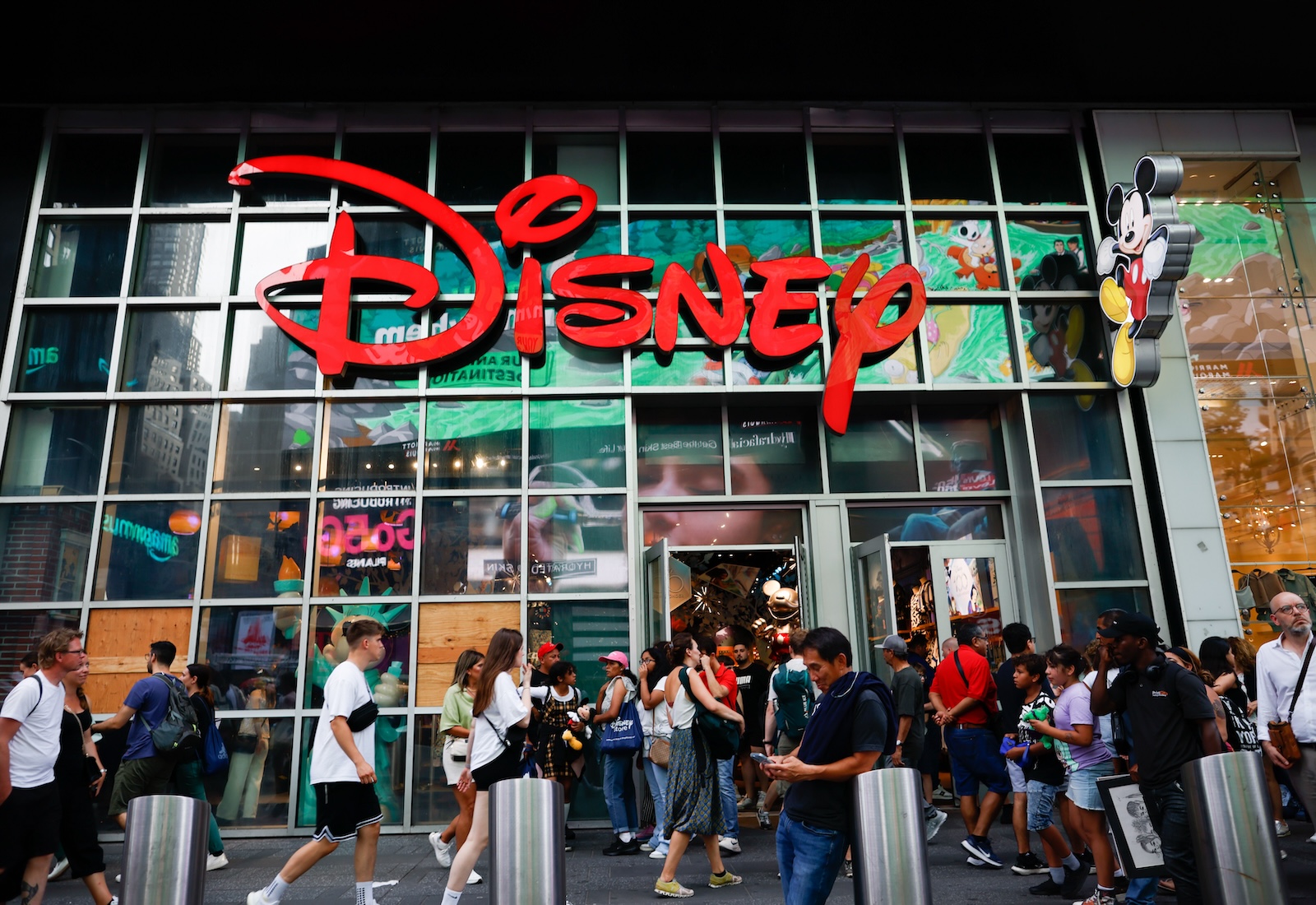
Wealthy investors and asset managers exercise a lot of power about the big companies whose stock they own or control. Each year, shareholder advocacy groups hope to exercise that power for good by submitting shareholder resolutions — 500-word proposals that can ask companies to voluntarily reduce their greenhouse gas emissions, or to disclose more information about their resource use.
Shareholders typically vote on resolutions between April and June during a period known as “proxy season,” named after the proxy statements companies distribute to investors before their annual shareholder meetings. These votes are not binding, but they can influence companies’ decisions and generate press on a specific issue.
This year, activist investors are scoring victories even before the start of proxy season. Shareholder advocacy groups have already extracted a handful of plastic-related concessions from major companies — including entertainment behemoth Disney, food processing giant Hormel, and Choice Hotels, one of the largest hotel chains in the world. The companies’ new obligations include reporting on and reducing the amount of plastic they use in their packaging, as well as more careful monitoring of dangerous plastic additives.
Activist investment firms like Green Century Capital Management—which manages more than $1 billion in assets—must make a business case for environmental action. Douglass Guernsey, a shareholder attorney at Green Century Capital Management who helped negotiate the deals with Disney and Choice Hotels, said the new commitments show companies are waking up to the threat single-use plastics pose to their bottom lines. Between the prospect of stricter state regulationsnew lawsuits against plastic producersand a global plastics treaty negotiated by the United Nations, plastics face some potentially serious regulatory and reputational prospects over the coming years.
“It unnerves investors,” Guernsey said, and the scale of the problem “is just beginning to dawn on corporate executives.”
The companies’ promises also shed light on the shareholder advocacy strategy, which is not necessarily to sway companies by voting on shareholder resolutions, but to use the prospect of a vote as a negotiation tool. According to Guernsey, shareholder advocates almost always prefer to reach an agreement with companies through dialogue – they only submit a resolution if they feel it is necessary to keep the conversation going. In some cases, after a resolution is filed, companies agree to make some sort of commitment in exchange for withdrawing the resolution.

Dominic Lipinski/PA Images via Getty Images
This is essentially what happened to Hormel. A nonprofit shareholder organization called As You Sow began talking to the company last fall, asking them to take more responsibility for plastic packaging after their products are sold to customers. As You Sow organizes investors and asset managers around a range of social and environmental issues, and it persuaded investors holding nearly $2 trillion in shares to vote for the 48 resolutions it introduced in 2023. Kelly McBee, As You Sow’s circular economy manager, said she had “productive conversations” with Hormel, but she still wanted to see more support for laws that make companies financially responsible for the trash they produce (known as “extended producer responsibility, ” or EPR, laws), as well as more investment in plastic collection and recycling infrastructure.
“That’s when we moved into the shareholder resolution phase,” McBee said. After As You Sow’s filing, Hormel came back to the table and offered some additional plastic obligations, including a pledge to reduce its cumulative packaging use by 10 million pounds by 2030. It also agreed to form an industry working group to promote policies that make packaging more recyclable or reusable, and to submit a report by the end of 2024 on ways for Hormel to become a more circular company, meaning one that reduces waste kept to a minimum. As You Sow withdrew its shareholder resolution in response to the new obligations.
“Hormel was pretty great to work with, they seemed genuinely motivated,” McBee said. In 2021, As You Sow gave the company an F grade plastic pollution scorecardpartly due to a lack of transparency around its plastic use and poor support for the collection and management of plastic waste.
The commitments secured by Green Century followed a similar arc. After discussions with Disney and Choice Hotels, Green Century submitted and then withdrew shareholder resolutions in exchange for corporate promises to measure, report and set new targets for reducing their plastic use.
Disney was already “ahead of the curve,” Guernsey said, with commitments to eliminate single-use plastics on its cruise ships by 2025 and to achieve zero waste in its theme parks by 2030. But more measurement and reporting will increase transparency around the company’s progress. Choice Hotels had already committed to phase out single-use polystyrene foam packaging by the end of 2023 and switch to bulk shampoo and other amenities by 2025. But an organization-wide plastic inventory will now allow the chain to set its first overall reduction target by early next year.
Other commitments recently secured by Green Century and other investors include one of the retail chain Costco, which agreed in October to report plastic use across its Kirkland brand products, and another from beverage conglomerate Keurig Dr. Pepper, what agreed in January to restrict its suppliers from using certain bisphenols — a family of plastic additives linked to hormone disruption. Green Century plans to unveil more plastic commitments — largely related to increasing disclosure and reducing plastic use — from about a dozen more companies in the coming weeks. Meanwhile, As You Sow has at least submitted plastic-related shareholder resolutions 14 other companies.

Kena Betancur/VIEWpress see Getty Images
Not all negotiations between companies and shareholder advocates lead to a mutual agreement, and decisions that go to a vote cannot force a company’s hand. For example, a 2023 resolution calling on Amazon to reduce its plastic packaging was largely ignored by the company despite received support from almost half of its shareholders. “All votes on stockholder proposals are non-binding,” McBee explained. “So even if 100 percent of shareholders vote on something, the company doesn’t have to take that action.”
However, votes can still have indirect influence. If a company ignores the will of its shareholders, McBee said, they can sell their shares, reducing its valuation and access to capital. Companies that disregard shareholder decisions can also make potential investors think twice about sinking their money into the company, or perhaps inspire lawmakers to write legislation that forces companies to take actions they won’t take voluntarily.
Yet many advocates question the power of shareholders to effect systemic change. Even after their most recent pledges, companies like Disney and Hormel will likely continue to be major plastic polluters—not to mention their other environmental impacts, such as the emissions associated with Disney’s fossil fuel-powered cruise ships and Hormel’s industrial meat products. Some environmental groups are pressuring large investors to sell their shares in polluting companies rather than trying to change them from within. Others favor the plea for stricter government regulations.
“[R]relying on shareholders to make corporations more accountable and socially responsible is misguided,” wrote Warren Staples, a former lecturer in social procurement at the University of Melbourne, and Andrew Linden, a corporate governance researcher at RMIT University, in a 2019 essay. “There are far more direct and systemically effective measures available to do this.”
Choice Hotels, Costco, Disney, Hormel and Keurig Dr. Pepper did not respond to Grist’s request for comment.
Even shareholder advocates acknowledge their strategy’s limitations, including on plastics. Globally, two garbage trucks’ worth of plastic enters the ocean every minuteand plastics and petrochemical companies are plan to make even more of the material over the coming decades. To curb the plastic problem, Guernsey said, “overall regulation is going to be important” — particularly standardized requirements for companies to disclose and report their plastic use, as well as more EPR legislation and bans on specific types of plastic.





